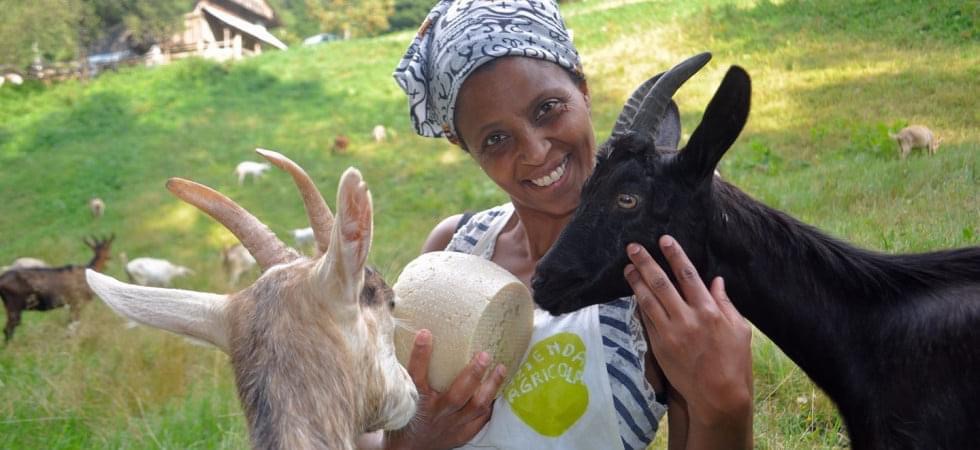In Bukavu, a woman protests in the streets against the authorities; the police shoot and…

Agitu Gudeta Killed in Trentino, Refugee and Businesswoman, A Symbol of Integration
She arrived in Italy in 2010 after fleeing Ethiopia, bloodied by civil war. Today Agitu Idea Gudeta, refugee and businesswoman, the “queen of the happy goats” as she herself liked to be called, was found dead inside her apartment on the second floor of Maso Villata in Valle dei Mocheni in Trentino Alto Adige.
According to investigators, she was killed by one of the “guys” she tried to help, a young African employee of the ‘La Capra Felice’ (The Happy Goat) farm and dairy where Agitu raised goats at the risk of extinction in the area.
The motive for the crime was for economic reasons. She was struck with a hammer that was found by the forensic police that carried out the inspection on site.
Agitu was strong and passionate and she carried out her work with enthusiasm. To solve the problem of wolves, she kept her goats within a fenced enclosure upon which she placed solar-powered coloured lights that flashed on and off. Life had taught her that, rather than being afraid of wolves, you had to be afraid of men like those who forced her to leave her native Ethiopia because of her participation in protests against land grabbing.
She returned to Trentino, where she had studied at university, and with great determination she reclaimed 11 hectares of abandoned public land and created a sustainable pasture for her herd of goats. Thanks to her passion and what she had learned from her maternal grandmother, Agitu raised goats and worked the milk using traditional methods to produce cheese, yoghurt and beauty creams: all based on goat’s milk.
According to news reports, two years ago Agitu received death threats and was victim to a racially motivated verbal attack: “You gotta leave, n*****!” by a man who lives near the organic farmer’s home.
In January 2020, the same man, who had also attacked a cheesemaker from Mali who helped Agitu, was sentenced by the Trento Courts to nine months for causing injury while the charges for harassment for reasons of racial discrimination have been dropped, contrary to what the prosecutor had asked.
At first, it was believed that Agitu’s murder was a racially motivated hate crime. But this time, Agitu was the victim of a friendly hand. Or rather, what should have been one. The hope now is that the great work carried out by this energetic businesswoman does not go to waste and that the community where she worked and lived will not be indifferent.




